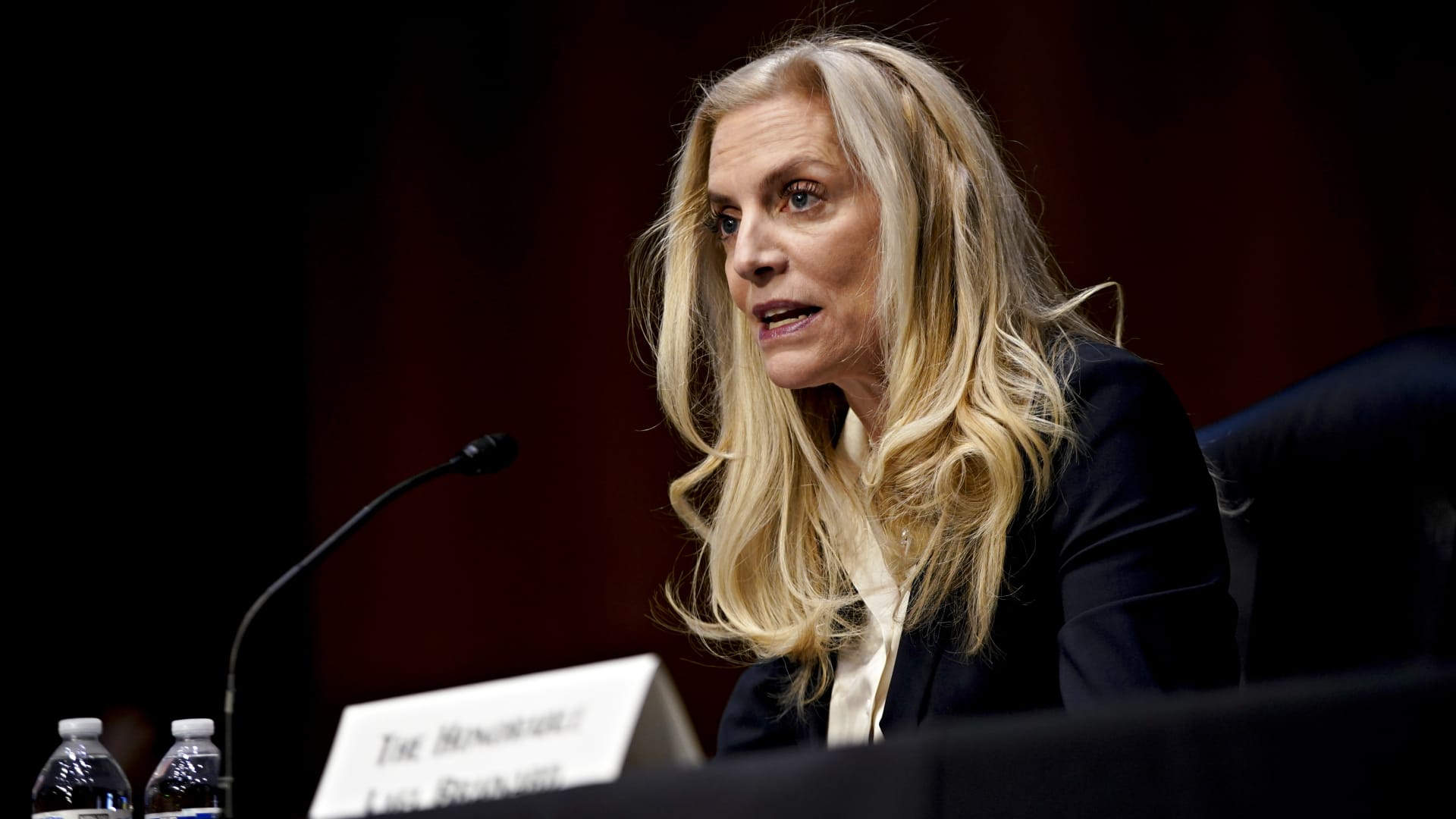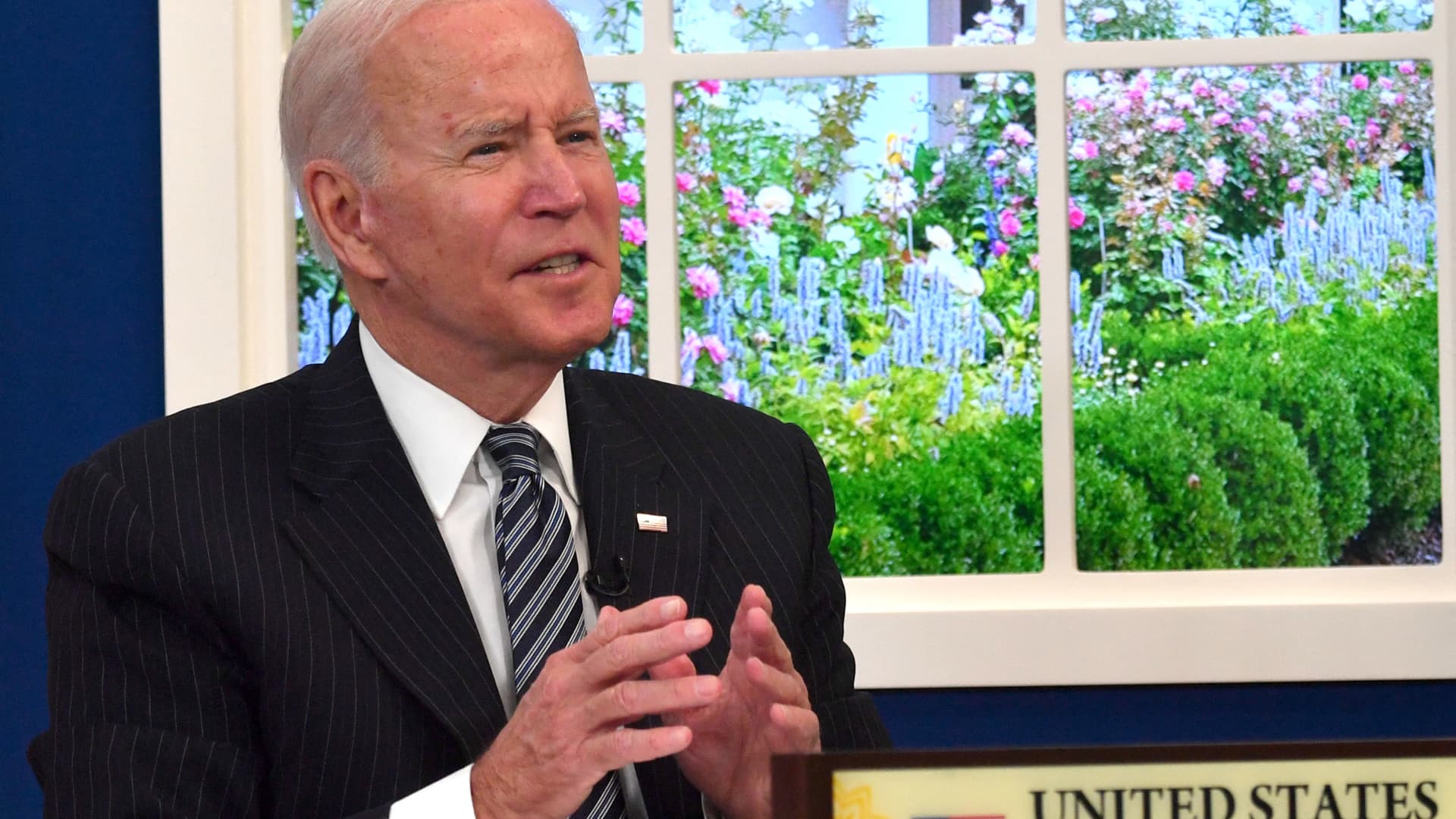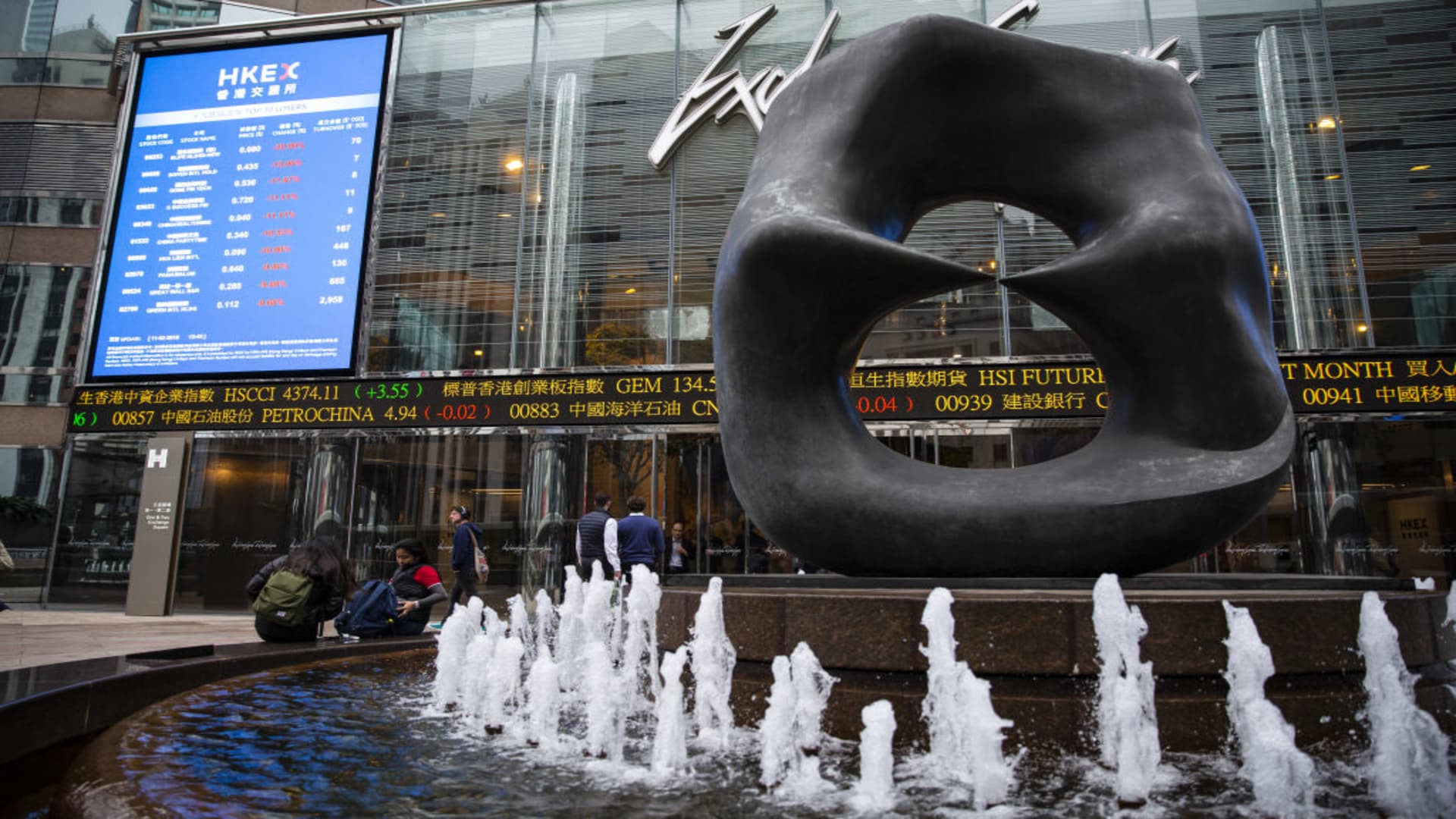North Korea is developing a new long-range missile system, U.S. official says
A senior administration official said the tests were carried out in February and March of this year.

People watch a TV broadcasting file footage of a news report on North Korea firing what appeared to be a pair of ballistic missiles off its east coast, in Seoul, South Korea, September 15, 2021.
Kim Hong-Ji | Reuters
WASHINGTON — The Biden administration confirmed Thursday that North Korea recently conducted two tests of a relatively new intercontinental ballistic missile system, ratcheting up tensions between leader Kim Jong Un and the U.S. at a precarious time in world politics.
A senior administration official, who spoke on the condition of anonymity in order to share details of the government's threat assessment, said the tests were carried out in February and March. North Korea conducted its last ICBM test in November 2017.
World leaders first learned of this particular ICBM system, which can carry nuclear weapons, during North Korea's Workers' Party parade, which is largely viewed as a military celebration, in October 2020.
"This is a serious escalation by the DPRK," the senior administration official said on a call with reporters, referring to the Democratic People's Republic of Korea.
"These launches are a brazen violation of multiple United Nations Security Council resolutions, vehemently raise tensions, and risk destabilizing the security situation," the person added.
The official said the Biden administration decided to share this intelligence widely in order to galvanize allies and partners "to speak in a united voice to oppose further development of such weapons by the DPRK."
The U.S. Indo-Pacific Command, the Pentagon's combatant command responsible for the region, will conduct "intensified surveillance activity in the Yellow Sea, as well as enhanced readiness among our ballistic missile defense forces in the region."
On Friday, the Department of Treasury is slated to announce "new actions to help prevent the DPRK from accessing foreign items and technology that enable it to advance prohibited weapons programs," the official said.
Last March, Pyongyang conducted its first missile test during President Joe Biden's administration.
North Korean leader Kim Jong Un inspects the proposed building site for the Ryonpho Vegetable Greenhouse Farm in the Ryonpho area of Hamju County, North Korea, in this undated photo released January 28, 2022 by North Korea's Korean Central News Agency (KCNA).
KCNA | via Reuters
At the time, senior administration officials who spoke on the condition of anonymity would not elaborate on what type of weapon was launched, the location of the test, or its success rate. Pentagon press secretary John Kirby also declined to comment on the missile launch.
North Korea has carried out nearly a dozen ballistic missile tests during Biden's presidency. The senior administration official declined to comment when asked by CNBC to quantify Pyongyang's potential arsenal.
The senior Biden administration official added that "the door remains open to diplomacy."
The Trump administration made some initial progress with North Korea, but the negotiations broke down more than a year ago after the U.S. refused to grant sanctions relief in exchange for Pyongyang's dismantling of nuclear weapons and long-range missiles.
Under third-generation North Korean leader Kim, the reclusive state has conducted its most powerful nuclear test, launched its first-ever intercontinental ballistic missile and threatened to send missiles into the waters near the U.S. territory of Guam.
Since 2011, Kim has launched more than 100 missiles, which is more than his father, Kim Jong Il, and grandfather, Kim Il Sung, launched over a period of 27 years.
North Korea is the only nation to have tested nuclear weapons this century.

 Fransebas
Fransebas 






























